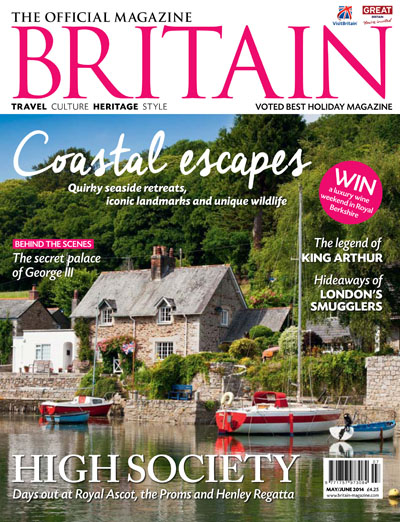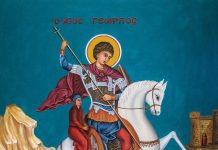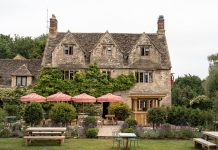They may be totally obsolete, or the usage may have changed but the fluidity and flavours of these old English words are as wonderfully sounding today as they were practical in their day.

1. Pearly pub gates
The names of British pubs are not all that they seem – certainly if you’re looking at the picture on the sign hanging outside them. The Hope and Anchor comes from the biblical text “We have this as a sure and steadfast anchor of the soul, a hope”; The Cross Keys is the symbol of St Peter, the gatekeeper of heaven; and The Royal Oak commemorates the tree that hid Charles II from Oliver Cromwell’s forces after his defeat at Worcester.
2. Talking to the animals
Down on the farm, in former times, wonderfully masterful lingo was commonplace. In Lincolnshire ‘midda-whoy’ was an instruction to a horse to turn left. In Cheshire ‘rynt ye’ was uttered by milk maids once they have milked their cows. ‘Cheddy-yow’ could be heard in Yorkshire as farmers called their sheep to come down from the fell, and in Northamptonshire the funny sounding phrase ‘poa poa’ was use to call to turkeys.
3. The hum of horses
The sounds of horses’ hoofs at a canter were onomatopoeically described as ‘butter and eggs, butter and eggs’. If the animal happened to be a clicker, that is, it caught its front hoofs on its rear ones when it was running, there were extra beats in the rhythm and it went ‘hammer and pinchers, hammer and pinchers’. A horse at a gallop went ‘pen and ink, pen and ink’.
4. Boris-noris
These rhyming compounds, charmingly affectionate semi-onomatopoeic phrases, seem entirely self-explanatory. For example ‘nibby-gibby’ is Cornish for touch and go. ‘Winky-pinky’ is a Yorkshire nursery word for sleepy. In Scotland ‘hockerty-cockerty’ meant to have one leg on each shoulder. If you said ‘inchy-pinchy’ in Warwickshire they would know you meant the game of progressive leapfrog. In Dorset the words ‘boris-noris’ was used to mean careless, reckless or happy-go-lucky and if you described yourself as ‘hozzy-nozzy’ in and around the Rutland area you would be describing yourself as not quite drunk.
5. Rhyming slang
Much of rhyming slang made famous by the Cockneys of East London simply rhymes but these expressions take it further with the meaning carried across: ‘borrow and beg’ – an egg (the term enjoyed a fresh lease of life during WWII food-rationing; ‘army and navy’ – gravy (which was plentiful at meal times in both services) and ‘didn’t ought’ – port (based on the simpering of ladies who, when asked to’ have another’, replied that they ‘didn’t ought‘).
6. Sinistral
‘Awk’ is an old English word dating back to 1440 which means ‘with or from the left hand’ and thus the wrong way, backhanded or clumsy, hence the word awkward. And somewhat unkindly, left-handed people have been variously described as awkward with old phrases such as ‘molly-dukered’, ‘corrie-fisted’ and ‘skerry-handit’ in Scotland and ‘car-handed’, ‘cack-handed’ and ‘cowie-handed’ in the northeast. In Lancashire the phrases ‘kay-fisted’, ‘kibbo’, ‘key-pawed’, ‘high-‘ammered’ and ‘caggy-ont’ were commonplace. And ‘dolly-posh’ was a slightly less cold term used in Yorkshire to describe lefties.
7. Powdering one’s nose
Just look at the string of euphemisms for our trips to the loo or restroom. We go and ‘check the price of wheat in Chicago’ in Fife; ‘empty the ashtrays’ in Manchester; ‘empty the teapot to make room for the next cup of tea’ in Buckinghamshire; ‘see the vicar and book a seat for evensong’ on the Isle of Wight; ‘shake the dew from one’s orchid’ in Cumbria; ‘turn one’s bike round’ in Suffolk; ‘wring out one’s socks’ in Kent; and if you worked for the good-old BBC you might ‘see a friend off to the coast’.
8. Kicking the bucket
This final action of the body is also something that people prefer not to confront directly, as the following euphemisms for dying attest: ‘stick one’s spoon in the wall’ (British slang 1800s); ‘go west’ (Cockney Dialect); ‘go trumpet-cleaning’ (late 19C: the trumpeter being the angel Gabriel); ‘drop one’s leaf’ (c1820); ‘take the everlasting knock’ (1889); ‘pass in one’s cheeks’ (b1872) and, most poetically perhaps, ‘faint away in this vale of tears’ (Brompton Cemetery, London 1896).
9. Exotic destinations
Colloquialisms involving ‘to go to’ have, over the years, not always meant straightforward travel. You could go to: ‘Peckham’ (early 19C) to sit down to eat; ‘Jericho’ (late 18C) to become drunk; or go to ‘Bath’ (mid 17C) to take up life as a beggar.
10. From sheep to sow
In the Lincolnshire dialect they marked out four distinct phases of intoxication. A man was ‘sheep drunk’ when he was merry and easily handled; then ‘lion drunk’ when he was brave and boastful; ‘ape drunk’ when he got up to silly, irresponsible tricks, and finally ‘sow drunk’ when he fell to the ground in an alcoholic stupor.
By Adam Jacot de Boinod, author of The Meaning of Tingo, published by Penguin Books and the creator of the iPhone App Tingo, a quiz on interesting words.
Related articlesThis week in history: 31 March to 6 April |
Click here to subscribe! |
|
|||||||||||||||||







 © 2024
© 2024